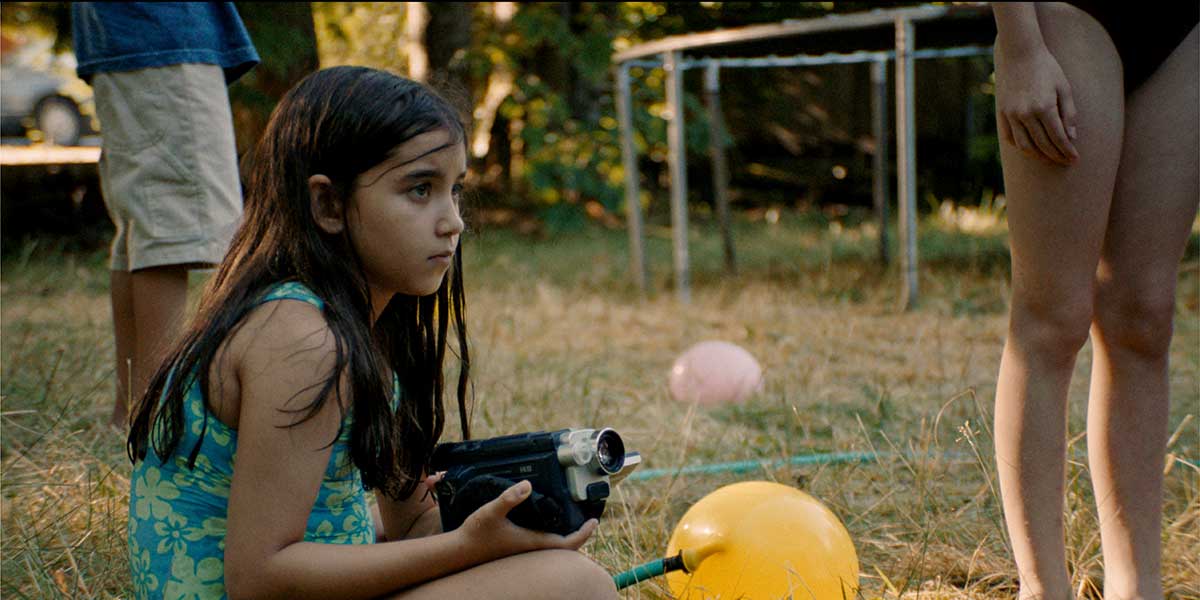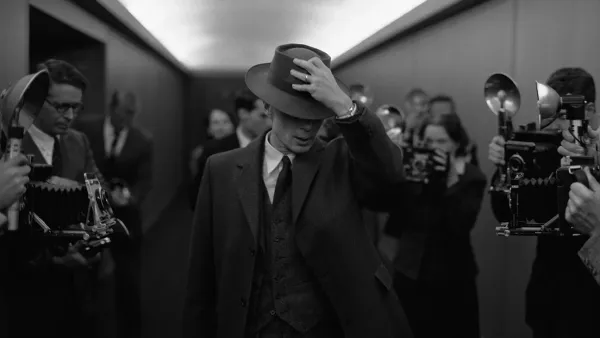Blue Heron | TIFF 50
Gentle, aching, and unforgettable, Blue Heron is a dreamlike story of memory, family, and grief.

I’m going to be honest: Sophy Romvari (Still Processing; Pumpkin Movie) is my favourite Canadian filmmaker working today and it is an impossible task to try to put into words what her feature debut Blue Heron, which had its North American premiere at TIFF this fall, accomplishes in its 90-minute runtime. With that said, I will try my best to tell you why this movie should be at the top of your watchlist for 2025 and why Romvari is the filmmaker to keep your eyes on in the coming years, not just in Canadian cinema.
Set in the 1990s, Blue Heron is a semi-autobiographical drama that follows the story of a Hungarian-Canadian family of six living on Vancouver Island. The opening scenes depict joyous moments of laughter and play during that time in summer when, as a child, the days seem to last forever and each one is filled with tiny moments of wonder. The narrative shifts as we start to see the eldest sibling demonstrate behavioural issues that continue to escalate, but Romvari’s screenplay resists easy (and frequently lazy) judgments of “problem children” that we are used to seeing onscreen. Instead, she threads immense empathy into her craft, showing how each member of the family navigates both love and struggle as they try to support their loved one and each other.
With Romvari’s ethereal and meditative style of directing and cinematographer Maya Bonkovic (Star Trek: Strange New Worlds; Ordinary Angels), the duo have made the naturally gorgeous setting of Vancouver Island look, somehow, even more beautiful. The film has a dreamlike, non-linear rhythm that often reminded me of Andrew Haigh’s All of Us Strangers. Frequent shots through glass create simultaneous feelings of both distance and intimacy. Each window in Blue Heron becomes a frame within a frame, offering quiet introspection into the lives of the family we are watching.
What makes Blue Heron so powerful is not simply its visual beauty, but the tenderness with which Romvari tells this deeply personal story. The film is sentimental, but never cloying; it carries a gentle ache, the kind that lingers long after the credits roll. Romvari allows her characters to be vulnerable, complicated, and contradictory, and she holds space for their moments of joy, anguish, and mourning with equal care.
Blue Heron is ultimately a story of memory and our search for answers to life’s big questions—the ones we often don’t find fully satisfactory answers for. What makes Romvari’s debut so moving is not resolution, but the care with which she renders each moment. Every gesture in every scene is imbued with compassion for her characters and, by extension, for us as viewers, many of whom will resonate with this family’s search for support and peace.
Sophy Romvari shows that cinema can hold the nuances of pain and love in a singular frame. With Blue Heron, she has announced herself not just as one of Canada’s most promising filmmakers, but as a singular voice capable of transforming the intimate and the difficult into something luminous, gentle, and unforgettable.




